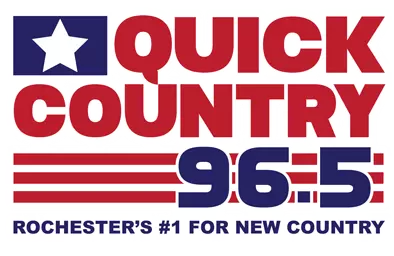
Minnesota Ranked a Top State For Car-Deer Collisions
Minnesota once again ranks as one of the top states where you're more likely to hit a deer with your car during the fall season.
It's a list we wish we probably weren't included on, but sure enough, Minnesota is listed as one of the states with the Highest Roadway Animal Accidents in the Fall in a new survey from Farmers Insurance.
The good news is that we're not number-one on the list; that honor goes to West Virginia, with a whopping 69-percent likelihood of having a roadway animal accident. But we're still on the list, though, coming in at #15 with a 56 percent likelihood of running into an animal in your vehicle this fall.
My home state of Wisconsin is ranked even higher, coming in as the 7th most likely state where you're likely to encounter a roadway animal accident in the fall. And, our neighbors to the south in Iowa are ranked second on the list, with a percentage of 65 percent.
So, yeah, a head's up that this is the time of year we need to be especially aware when we're out on those highways and country roads-- especially at dusk. Farmers Insurance has some tips when it comes to minimizing your risk of having a collision with a deer or other animal this fall:
- Use your high beams: Wildlife is often most active at dusk and dawn, according to the Colorado Parks Department. If appropriate, while driving at night (when there is no fog present, or oncoming traffic) use your high beams to increase visibility and spot animals more easily. Or, stick to daylight hours if you can, to help reduce your risk.
- Heed warning signs: States and cities often place wildlife crossing signs near areas with heavy animal traffic for good reason - keep an eye out for signs, and of course, animals on the move.
- Stick to the middle lane: If you're on a multi-lane road, staying in the middle lane may give you more time to spot an animal that may be crossing ahead of you.
- Know what to do if an accident occurs: If you hit an animal, pull over and call local law enforcement. They can direct you on what actions to take. Make sure you stay away from the animal since they may only be stunned and might panic if you come close, causing additional harm to you or your vehicle.
- Get home safely: If you hit an animal, don't assume your car is safe to drive. Look for any leaks, loose parts, broken lights and tire damage. If you spot issues or if your vehicle seems unsafe, have the car towed.
Listen to Curt St. John from 6 to 10 a.m. on Quick Country 96.5
and from 10 a.m. to 2 p.m. on 103.9 The Doc
More From Quick Country 96.5






